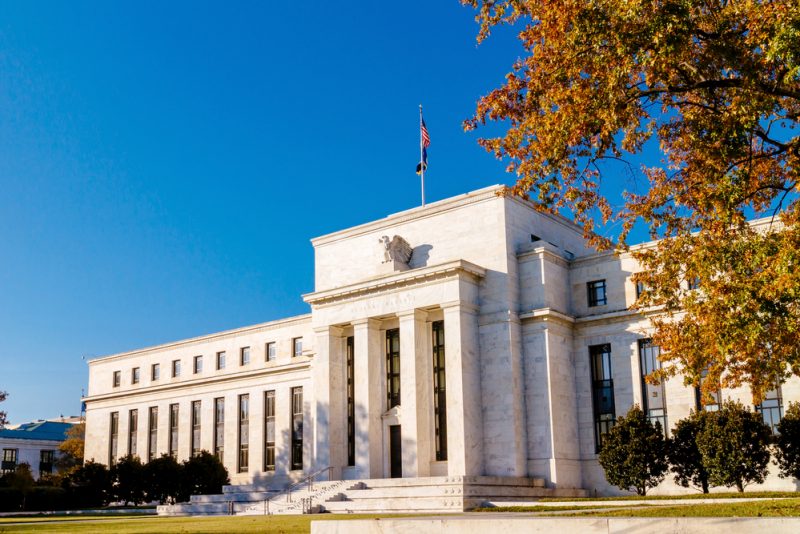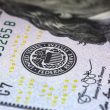A new report from the Federal Reserve (Fed) has revealed that banks are increasingly concerned about the economic outlook, with tightening lending standards and weakened demand posing a threat to economic growth. The Fed’s quarterly “Senior Loan Officer Opinion” survey showed that requirements for commercial and industrial loans, as well as household-debt instruments such as mortgages, home equity credit lines, and credit cards have become much tougher.
Predictions and evaluation
Questioned respondents gave a gloomy outlook for the coming year, with banks reporting that they expect to toughen standards across all loan categories. Among the most frequently cited reasons for the expected tightening of lending standards were the qualitative deterioration of loan portfolios and clients’ underlying collaterals, reduced risk tolerance by lenders, as well as concerns about bank funding costs, liquidity positions, and the “run on deposit”.
The survey also revealed a weakening demand across most credit categories, as tighter standards and weaker demand were reported for commercial and industrial loans, commercial real estate lending, and many other household-debt instruments. Tougher conditions were observed across lending to all business sizes, raising concerns about the potentially negative impact on economic growth.
The report is published amid the ongoing turmoil in the banking industry, with regulators shutting down Silicon Valley Bank and Signature Bank in March following a run-on deposit prompted by fears over the institutions’ liquidity. First Republic Bank also faced similar troubles and was taken over by JPMorgan, while UBS bought rival Credit Suisse after the latter needed a rescuing hand.
Despite the troubles in the US and global banking industries, just last week the Fed decided to further raise interest rates for the 10th consecutive time since March 2022. However, its economists warned in March that the tightening standards driven by the banking sector problems were likely to end up in a shallow recession later this year.
Impact on the economy
The findings of the Fed’s recent report have significant implications for the US economy and beyond, as tighter lending standards and weaker demand could dampen global economic growth. The slowdown in lending growth has been ongoing since the second half of the last year, but the pace has notably increased since then.
Tighter lending standards reported by banks could lead to reduced credit availability, which in turn could impact consumer spending, investments by businesses, and overall economic activity. If lending becomes too restrictive, it could stifle economic growth, leading to a deeper recession.
The report’s findings also raise concerns about the impact of deposit outflows on bank liquidity positions. If banks are unable to meet their obligations due to a lack of sufficient liquidity, it could lead to a repeated run on deposits, similar to what was seen with Silicon Valley and Signature Banks earlier this year. This could lead to further reputational damage for the banking sector and the economy as a whole.
Moreover, reduced risk tolerance among banks could lead to a pullback in lending to riskier borrowers, including small businesses and startups. These enterprises traditionally have a much stronger dependence on bank loans and other financing products, and if credit availability dries up, it could suffocate innovation and entrepreneurship.
So was the rise in interest rates justified?
The Fed’s decisions on interest rate hikes have been met with mixed reactions so far. Some economists argue that the Federal Reserve needs to be more cautious, given the risks posed by tighter macroeconomic policy, tougher lending standards, and hence weaker demand. Others, however, believe that the national bank’s decisions to raise refinancing rates were justified, given the strength of the US economy.
One particular concern expressed by the commercial banks was the risk of possible deposit outflows, when the clients massively withdraw their deposits, simply due to hypothetical concerns or speculations over a given bank’s financial stability. This can create a liquidity crisis for that bank, as it may not have enough cash at hand to immediately meet the demands of all depositors. The fear of deposit outflows was especially acute for mid-sized banks, many of which have been struggling with profitability and are considered to be more vulnerable to financial shocks.
Final thoughts
In fact, the Federal Reserve’s “Senior Loan Officer Opinion” survey paints a worrying picture of the US banking sector’s outlook, with financial institutions expressing loud concerns about the slowing economy, tighter lending standards, weaker credit demand, and possible deposit outflows. While the Fed has already taken steps to address continued inflationary pressures, the decision to raise interest rates may exacerbate challenges the banking sector is facing, worsening the implications for the economy. It remains to be observed whether the Fed’s actions will prove to be sufficient for stabilizing the US banking industry and preventing a deeper economic downturn.
WeInvests is a financial portal-based research agency. We do our utmost best to offer reliable and unbiased information about crypto, finance, trading and stocks. However, we do not offer financial advice and users should always carry out their own research.
Read More









